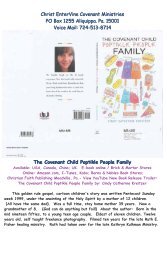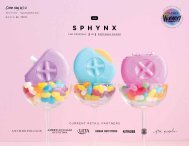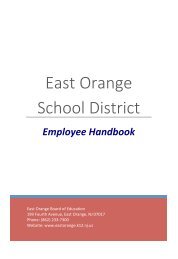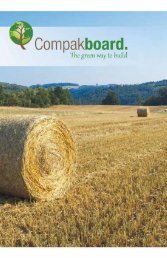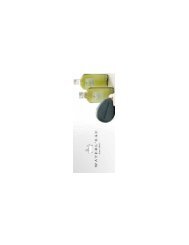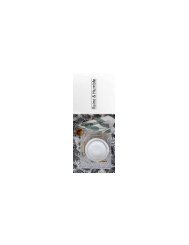Ref
Create successful ePaper yourself
Turn your PDF publications into a flip-book with our unique Google optimized e-Paper software.
On Your<br />
Plate<br />
Changing your diet is one of the more significant ways you can<br />
decrease your overall environmental impact due to all of the<br />
land, water, and energy it takes to grow our food. With that in<br />
mind, USC has a 14-point food philosophy that can help guide you<br />
on your way to making environmentally friendly food choices.<br />
TIPS & ACTIONS<br />
1. CHOOSE LOCAL, ORGANIC, AND SEASONAL FOODS<br />
Local foods cut down on food-miles traveled; organic foods are grown<br />
without harmful pesticides; and seasonal foods are fresher and packed<br />
with more nutrients. Check labels at the dining halls to find local foods.<br />
2. FOCUS ON MINIMALLY-PROCESSED FOODS<br />
Processed foods are higher in fat, sugar, and salt. Plus, they require more<br />
energy to produce and more packaging for transport. Help your body<br />
and the environment by choosing minimally processed foods –which<br />
can be found in the dining halls and in many restaurants on campus.<br />
3. ONLY TAKE WHAT YOU KNOW YOU WILL EAT<br />
Reduce food waste by taking appropriate portion sizes. Still hungry?<br />
You can always go back for seconds, or thirds, or fourths…<br />
4. THINK “PRODUCE FIRST” TO EAT LOWER<br />
ON THE FOOD CHAIN<br />
Eating a plant-based diet saves energy and water, and cuts down on<br />
carbon dioxide emissions. If eating more vegetables intimidates you,<br />
you can start small by eating chicken instead of red meat once a week.<br />
PLANTS IN THE USC<br />
TEACHING GARDEN<br />
Two on-campus urban farms<br />
produce 3,520 plants. Using<br />
aeroponic technology, these plants<br />
use 90% less water than traditional<br />
farming. Look out for these greens<br />
on the menu at EVK and the<br />
restaurants of USC.<br />
SUSTAINABILITY<br />
2020 GOAL<br />
USC has a goal to purchase 20%<br />
of food from sustainable sources<br />
by 2020.<br />
WASTE FROM NEKTAR<br />
“0” – the amount of waste sent<br />
to landfill from Nektar. The pulp<br />
and fruit skins from Nekter go into<br />
the vermiculture bin (a.k.a. worm<br />
composting) at the community<br />
garden behind Parkside, making<br />
Nekter an almost zero waste facility.<br />
Questions about dining on campus?<br />
Contact Lindsey Pine, USC’s Registered<br />
Dietitian at lpine@usc.edu or 213.740.9901.<br />
Lettuce, tomatoes, and beets OH MY!<br />
Check out the Trojan Farmers Market,<br />
every Wednesday from 11AM - 3PM at<br />
McCarthy Quad.








